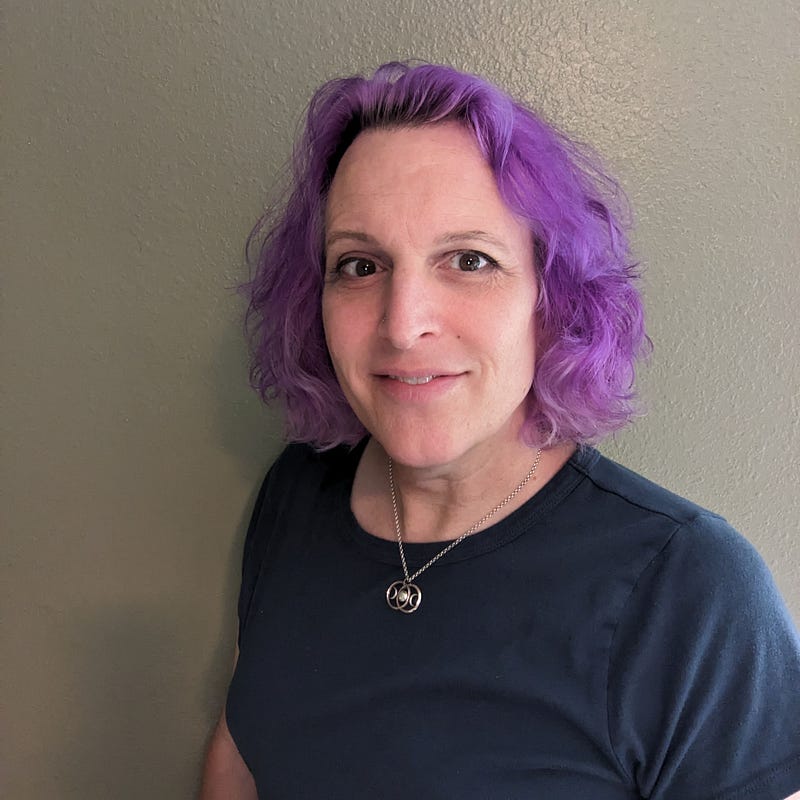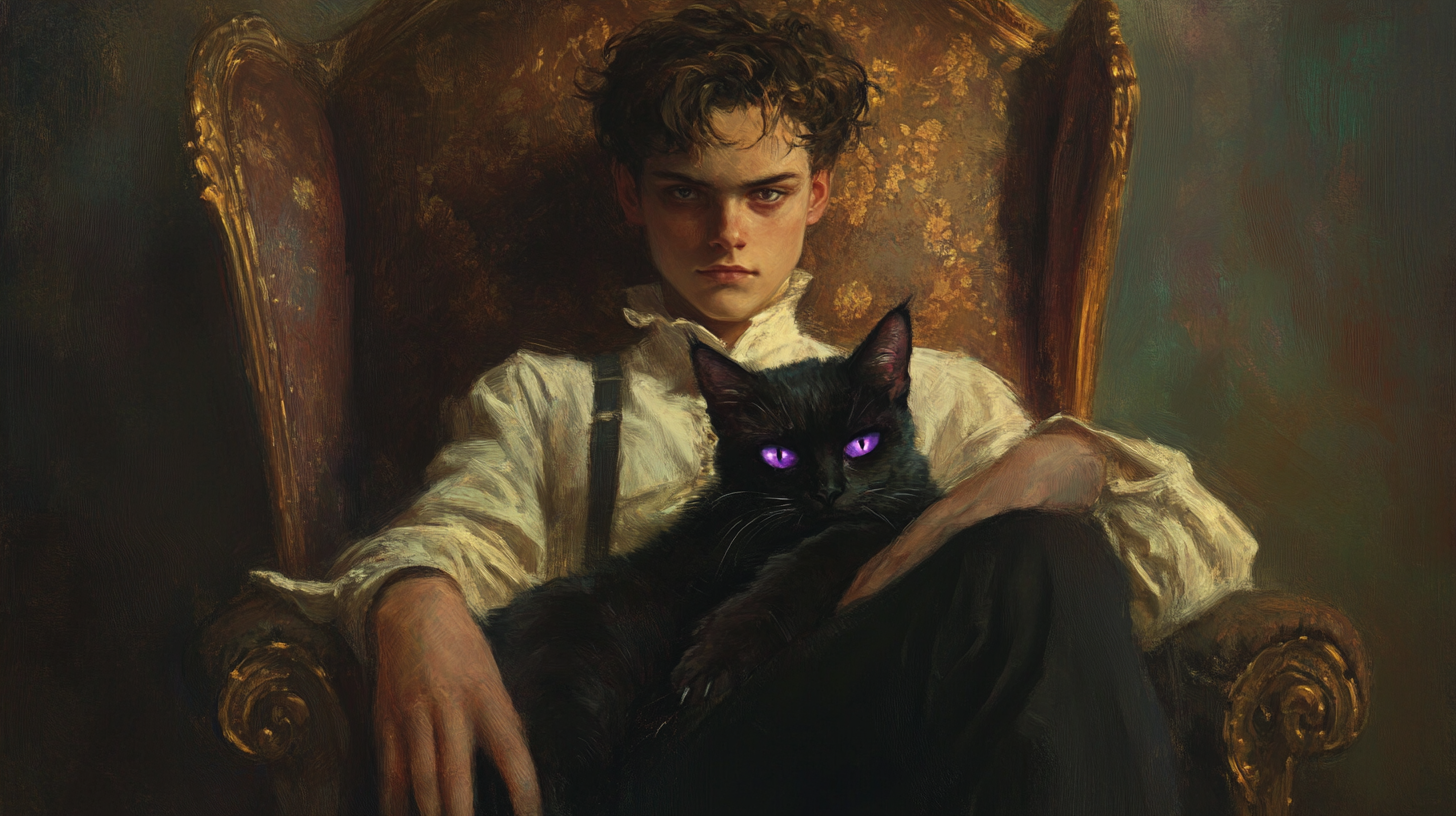Hooded Eyes and the Transgender Existential Question
A case where the eyes do not have it and can’t get it


I read a book yesterday about hooded eyes. Those not cursed with the affliction possess eyelids that span from lash line to eyebrow in an unbroken, graceful arc. A hooded eye, however, droops in the middle of the eyelid, changing the perceived shape of the eye and obscuring part of the eyelid. Perhaps the picture of my disfigured face above makes clear the nature of a hooded eye.
No doubt each of you is crying out:
Jeezy Creezy, Amethysta, first you’re transgender, which is difficult enough. But now THIS? When will the insanity end?
The author of the book — Courtney Nawara — faced the same malady. A makeup artist informed Courtney her hooded eyes would tax existing makeup techniques, likely insinuating Courtney get herself to a nunnery posthaste.
But Courtney didn’t give up. No — she created her own look, developed her own techniques, and wrote a book to help other poor schmoes (like me) accept our hooded eyes. Courtney was forced to validate herself and her hooded eyes, and emerged more powerful as a result.
I admire Courtney Nawara. When told she did not live up to normal standards of beauty, she rejected what she heard and affirmed herself.
Courtney solved the basic problem of human existence.
And I don’t mean hooded eyes — I mean deciding we are worth existing even when others doubt us.
The past week of my existence
If you follow my writing at all, it was likely clear I had some difficulty recently. I requested validation from readers — in short, I fished for compliments. I followed the request with a confession that my personal growth hit a wall.
After delving deep into my soul to find who I am, I realize I need to address low-level issues of self-worth, possibly derived from childhood trauma.
I trace the beginning of my recent crisis to February, 2023. When I began writing, I intended to link science — my own experience in genetics and chemistry — to my transgender experience. I hoped to find my identity in biology textbooks and share with the world a theory of transgender identity.
But I discovered the science is unclear — while there are correlations among genetics, brain structure, and psychological traits — the correlations are far from substantiated. The floor fell out from under me.
Since February, however, my focus shifted. I began writing about identity as a personal and social complex each of us must create.
Whether we find clear scientific causes to identity traits is irrelevant when we need to address identity today. People die every day from being marginalized and exterminated.
But the shift in the message I convey required me to address a more fundamental question.
Am I enough?
If I am unable to prove — to myself, to friends and family, to society, to my government — that transgender is real and that I am transgender, what am I supposed to do next? I was faced with the question of whether I, Amethysta, am enough on my own to continue investigating.
But each of us is faced with this question every time we fail at anything — is our mere existence sufficient motivation to carry on? I considered that question in February: if I cannot prove my existence in something tangible, why do I keep existing?
I still don’t have a good answer to the question, and I believe the answer is a key to unlocking the feelings of worthlessness I experienced recently. “Am I enough?” asks whether my existence is justified in itself. Am I worth celebrating simply because I live?
What makes a human valuable?
Being worth celebrating implies value of some sort. Do we celebrate ourselves because we bring value to the Universe?
If I examine the question from a utilitarian standpoint, I must consider what I contribute to the overall human condition. But to do so entails evaluating the contributions of every other human — from Mohandas Ghandi to Adolf Hitler. The question is ethical, not existential.
This line of questioning goes nowhere. Ethics requires a context — valuable to whom? Of use to whom? Would I have been of more value 100 years ago? Would I be of more value 100 years from now?
Does it make sense to frame the value of a human life in context of the society around it? The direction I took — to validate transgender people through science — does just that.
Appeals to science play into the assumption that cisgender and heterosexual are “normal” as opposed to “common and frequent.” Evaluating my life in context of Western society demands I not waste the space I take up.
And that is why I apologize for taking up space. I question whether the space I currently take up could be better utilized by somebody — anybody — else.
Beyond utilitarianism
The question “Am I enough?” must be asked with the assumption value does not derive from politics, work, lineage, or money. Is each human of value simply for being human? Supposedly, the authors of the Declaration of Independence believed that, although we need only look around to see how that worked out.
I sense those with the confidence not even to consider the question are the only ones who have profited — by turning society into hooded eyes vs. non-hooded eyes, less-ons vs. morons, Star-Bellied Sneetches vs…. And on and on.
The answer to the question is complicated. From an existential standpoint, each of us must answer it. We must say to ourselves “Yes, I am enough in myself to continue to develop, to grow, and to love myself.”
That, apparently, is where I stumble. That is why I apologize — why I confess to the Universe:
I recognize I should not be be developed or grown or cared for. I’m not worth it. I should be relegated to a rubbish heap of humanity to allow the rest of the pretty, non-hooded eye people to carry on peacefully. I’m sorry I bothered you with my uselessness — and hooded eyes.
But we cannot know where our utility will arise. We must find our purpose within ourselves. We must agree to search for and develop our purpose. We must believe our identities contribute to the Universe purely for being ours.
Am I enough? It is an existential question that plagues us from before birth to after death.
I hope every reader gets to this paragraph wondering why I ask the question at all. I hope every reader has pondered the question and answered “Yes” without a second thought.
That which is born will surely die. But not all that is born will surely live. I don’t want to be part of the second group.
Hooded eyes or not, I intend to be myself and express myself. To add to the Universe and to human lives…even if the only life I add to is my own.




